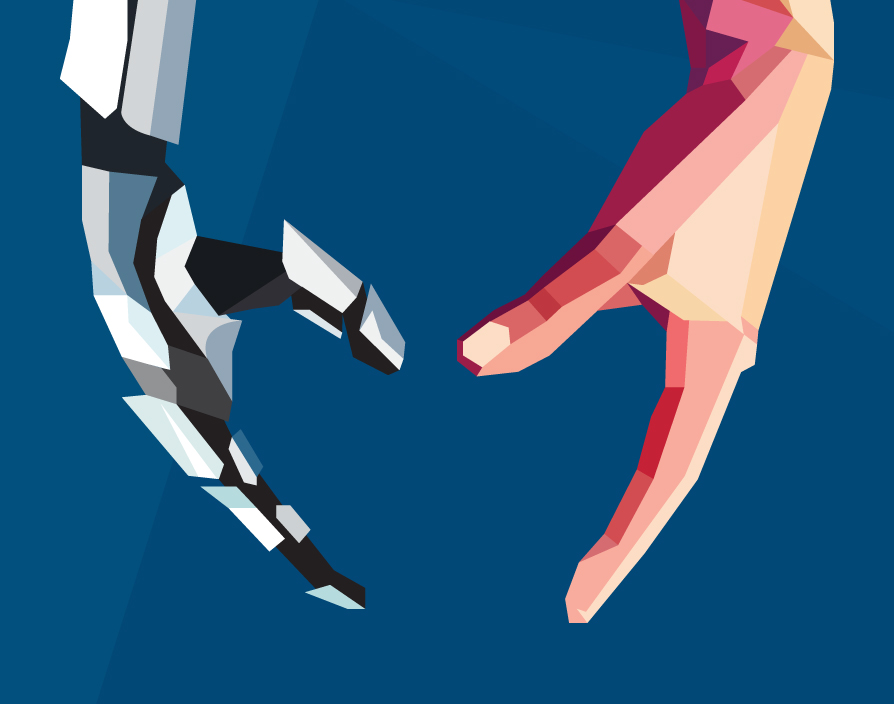Some jobs will become obsolete as a result of AI and automation. Even though this may be as low as 5%, the impact of these technologies will be felt across almost all sectors. The good news is that monotonous and routine tasks will be handed over to automated colleagues, freeing up time for more rewarding and creative work. Of course many traditional career paths and education will need to be reassessed as trainees have often taught the ropes by carrying out these basic tasks. This is a trend The Myers-Briggs Company have analysed as part of their recent trends report, People First for Organizational Fitness, and there are some interesting implications to consider.
As AI moves to eliminate many simple and mundane tasks, employees can focus more of their time on what computers cannot do – the human skill set that sets them apart in the job market. Technical skills will always be valuable but now soft skills like communication, interpersonal skills and creativity are becoming more valued.
The early stages of many careers have tasks that could be – and, for financial reasons, probably will be – performed by AI. One example of this would be the legal profession where junior staff spend time looking up precedents and codifying documents, tasks which could easily be performed by AI. But if trainees are not needed for this work, will less trainees be needed? And if there are less trainees, will there be a shortage of talent some years down the line? In many cases, organisations and indeed professions will need to rethink career paths and training.
Instead of thinking about how jobs will be wiped out, people need to focus on the redesign of jobs and re-engineering of business processes. While AI and machine learning will be everywhere, the suitability for this technology of work tasks varies greatly. Automating parts of a job will often increase the productivity and quality of workers by complementing their skills with machines and computers as well as enabling them to focus on those aspects of the job that most need their attention and provide the most valuable input.
While some jobs will be done almost entirely by AI and automation, we’ll see whole new industries and jobs emerge. Many jobs available today weren’t even imagined 20 years ago, but have been made possible by technology. The changes are also likely to be more subtle though. If we think about the role of a secretary 20 or 30 years ago, many tasks have been replaced by technology, but the role itself has evolved into something more challenging and interesting as mundane tasks are handled in the background.
The pace of technology-driven change seems to be increasing and it is key that people realise that they need to be flexible in their approach to work. In many fields, what they learn now will be different in ten years.
For people to do well in a digital world, developing resilience and embracing change is increasingly important. People will need to look at who they are and what they can – and want – to do. And organisations need to play an active role in this. A helpful starting point, for both the employee and employer, is often to increase an employee’s self-awareness in order to help them understand themselves better. Self-awareness is the bedrock of a successful career and can help employees to cope and flourish in times of change.
To retain talent, organisations also need to invest in retraining and skills development programmes. It will not be enough to pay lip service to ongoing training; this will be a core part of developing and retaining staff, especially as employees are becoming more mobile and change jobs more often. Not only do companies need to be looking for ways to ensure the skillsets of employees remain up to date through active learning efforts but they also need to carefully balance technical skills with the soft skills that will help them adapt.
A recent McKinsey Report suggests that 25% of CEO time is taken up by tasks that could be automated, 45% of individual activities could be automated and that 60% of all occupations could see at least a third of their activities automated. This presents some very human problems for HR departments. They’ll need to help people cope and work constructively with change. Organisations that adopt AI but neglect the human element are setting themselves up for failure.
HR professionals are in an ideal position to help organisations navigate the changes to come. By being advisors and experts in this arena, human resource pros can ensure that employees and leaders keep the channels of communication and understanding open during the transition businesses are embarking on. ![]()
Share via:



















































